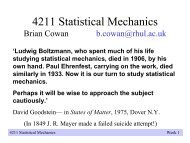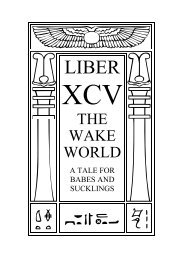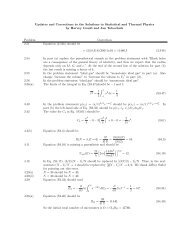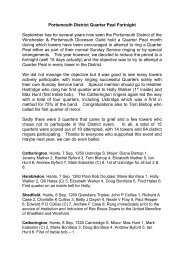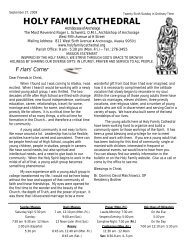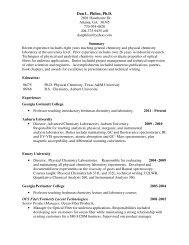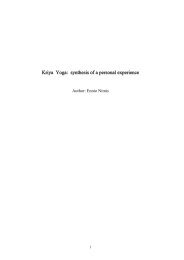A Critique of The German Ideology
A Critique of The German Ideology
A Critique of The German Ideology
Create successful ePaper yourself
Turn your PDF publications into a flip-book with our unique Google optimized e-Paper software.
interpreted to us as a revolution <strong>of</strong> world significance, the begetter <strong>of</strong> the most prodigious<br />
results and achievements.<br />
If we wish to rate at its true value this philosophic charlatanry, which awakens even in<br />
the breast <strong>of</strong> the honest <strong>German</strong> citizen a glow <strong>of</strong> national pride, if we wish to bring out<br />
clearly the pettiness, the parochial narrowness <strong>of</strong> this whole Young-Hegelian movement<br />
and in particular the tragicomic contrast between the illusions <strong>of</strong> these heroes about their<br />
achievements and the actual achievements themselves, we must look at the whole<br />
spectacle from a standpoint beyond the frontiers <strong>of</strong> <strong>German</strong>y.<br />
<strong>German</strong> criticism has, right up to its latest efforts, never quitted the realm <strong>of</strong> philosophy.<br />
Far from examining its general philosophic premises, the whole body <strong>of</strong> its inquiries has<br />
actually sprung from the soil <strong>of</strong> a definite philosophical system, that <strong>of</strong> Hegel. Not only<br />
in their answers but in their very questions there was a mystification. This dependence on<br />
Hegel is the reason why not one <strong>of</strong> these modern critics has even attempted a<br />
comprehensive criticism <strong>of</strong> the Hegelian system, however much each pr<strong>of</strong>esses to have<br />
advanced beyond Hegel. <strong>The</strong>ir polemics against Hegel and against one another are<br />
confined to this -- each extracts one side <strong>of</strong> the Hegelian system and turns this against the<br />
whole system as well as against the sides extracted by the others. To begin with they<br />
extracted pure unfalsified Hegelian categories such as "substance" and<br />
"self-consciousness", later they desecrated these categories with more secular names such<br />
as species "the Unique", "Man", etc.<br />
<strong>The</strong> entire body <strong>of</strong> <strong>German</strong> philosophical criticism from Strauss to Stirner is confined to<br />
criticism <strong>of</strong> religious conceptions. <strong>The</strong> critics started from real religion and actual<br />
theology. What religious consciousness and a religious conception really meant was<br />
determined variously as they went along. <strong>The</strong>ir advance consisted in subsuming the<br />
allegedly dominant metaphysical, political, juridical, moral and other conceptions under<br />
the class <strong>of</strong> religious or theological conceptions; and similarly in pronouncing political,<br />
juridical, moral consciousness as religious or theological, and the political, juridical,<br />
moral man -- "man" in the last resort -- as religious. <strong>The</strong> dominance <strong>of</strong> religion was taken<br />
for granted. Gradually every dominant relationship was pronounced a religious<br />
relationship and transformed into a cult, a cult <strong>of</strong> law, a cult <strong>of</strong> the State, etc. On all sides<br />
it was only a question <strong>of</strong> dogmas and belief in dogmas. <strong>The</strong> world was sanctified to an<br />
ever-increasing extent till at last our venerable Saint Max was able to canonise it en bloc<br />
and thus dispose <strong>of</strong> it once for all.<br />
<strong>The</strong> Old Hegelians had comprehended everything as soon as it was reduced to an<br />
Hegelian logical category. <strong>The</strong> Young Hegelians criticised everything by attributing to it<br />
religious conceptions or by pronouncing it a theological matter. <strong>The</strong> Young Hegelians are<br />
in agreement with the Old Hegelians in their belief in the rule <strong>of</strong> religion, <strong>of</strong> concepts, <strong>of</strong><br />
a universal principle in the existing world. Only, the one party attacks this dominion as<br />
usurpation. while the other extols it as legitimate.



